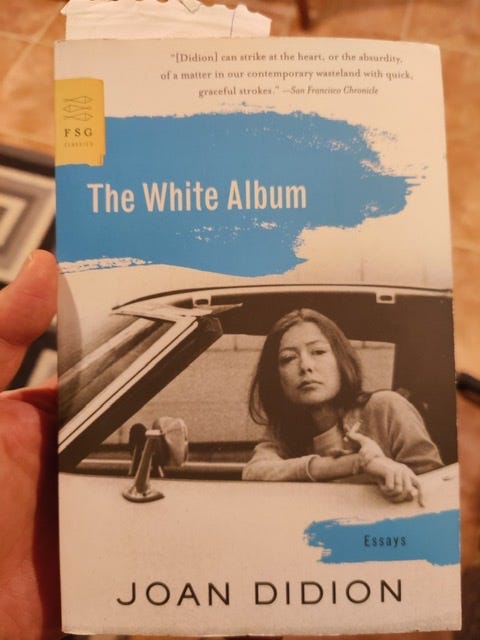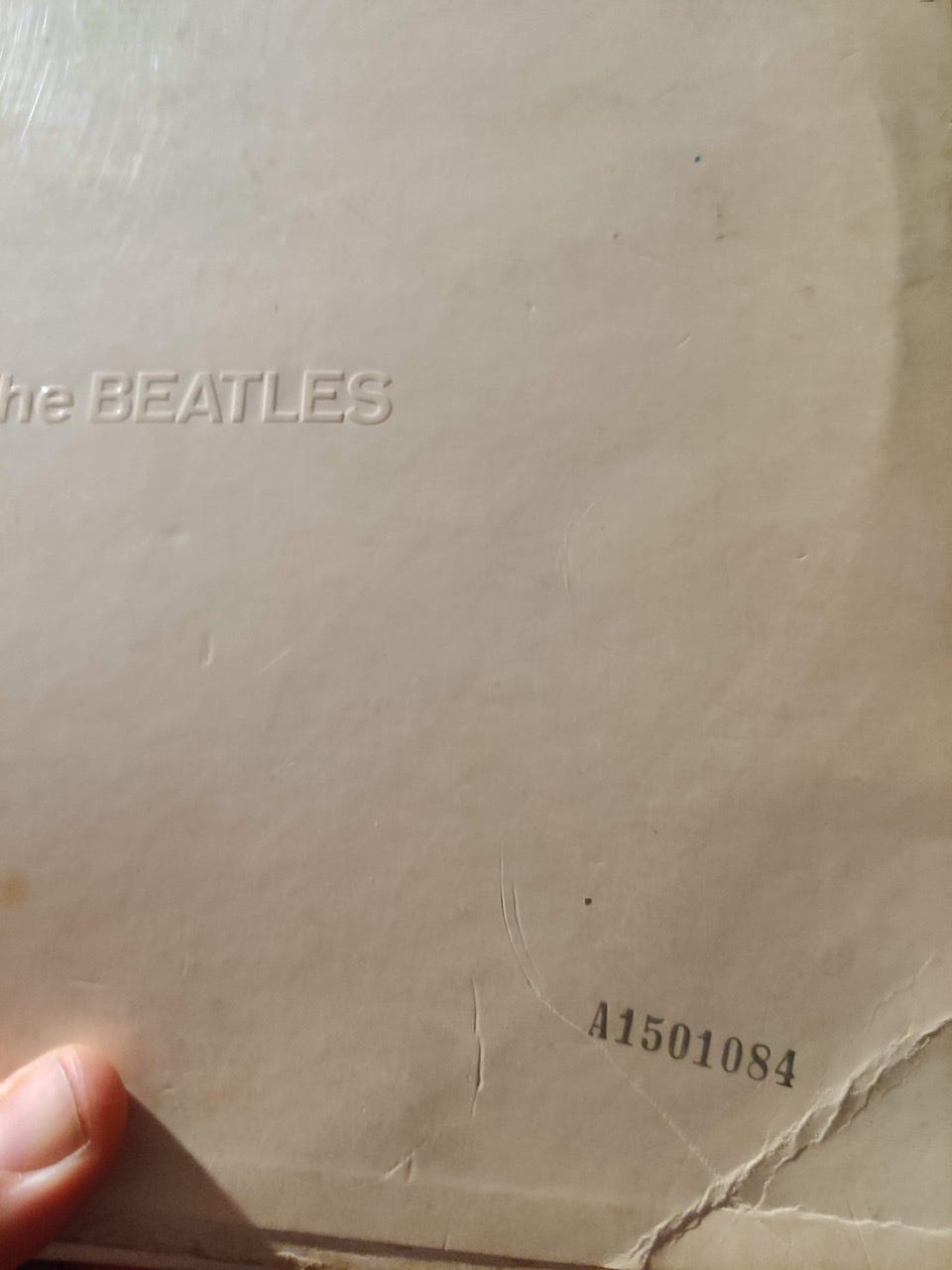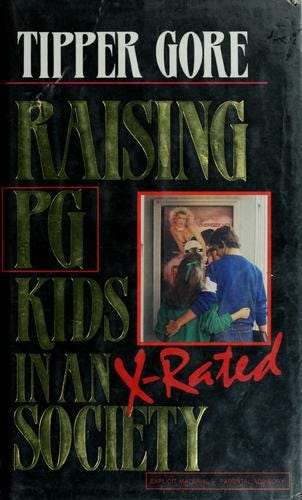The White Album was the only Beatles album I knew until I was fifteen years old. It is one of the best rock albums ever made. I know it like I know my own smell.1 I knew a few other songs from the radio, of course; but I remember when a high school friend looked at me like I was from another planet when I said I didn’t know “Penny Lane,” and in return, I boggled at why he disliked my mix tape with “Helter Skelter” on it, because “the Manson family said it inspired them.”
Which is like believing the Son of Sam about the dog, in my opinion. No one thinks you’re creepy if you own a black Labrador retriever. I’m not even a big Beatles fan, though I begrudgingly admit their massive influence on the culture, after rock ‘n roll nearly failed—defanged by white supremacy, which only aired neutered, whitewashed cover bands. Ed Sullivan gave Elvis a video pelvis-ectomy, showing him only from the waist up; Chuck Berry was in jail for molesting a 14-year old. The Beatles were a mop-cut Trojan horse, asking to hold your hand, saving the fish and finger pie for later.
What put the album in my mind again was reading Joan Didion’s eponymous essay about the end of the ‘60s, and how she said everyone felt unmoored; many of us feel the same, today. I should have read it earlier. It’s not like I wasn’t exposed to Joan Didion. I was given a copy of Slouching Towards Bethlehem by a friend, and to my shame, I never read it, and lost it in a move. I was a bad book friend. But I’m making up for lost time.
It’s good that I didn’t read it then. I didn’t have much patience for essays, especially old ones, at that time. If I’d read it, I wouldn’t have understood it. Hell, I may not have understood “The White Album” five years ago. Not the way I do now, after six years of 2016. I’m only just now crawling out of that hole, and able to look at it even tangentially from the outside. (Exploring the Pine Barrens in my goofy car helps.)
The essay is named after the self-titled The Beatles album, which itself was the end of an era: it’s the album they made after going to India to engage in Transcendental Meditation. It’s also their only double album, fabulously disjointed, and the cover is blank2. It’s indulgent, brilliant, eclectic, and stupid all at the same time.3 To us kids who grew up after the Beatles broke up, it has its own mythology. In the days when you couldn’t look up a band’s discography instantly, we thought it was their last album; that they broke up not because of Yoko Ono (also bullshit) but because of Helter Skelter.
I listened to the album again last night. Not just any copy, but my mother’s scratchy, skippy vinyl copy with the original fold-out lyric sheet with Lennon’s doodles, and four full color headshots of the band. My uncle Paul often brought 45’s from the jukebox at his bar in Brooklyn (Danny’s of Montague Street, at that time; The International of Torch Song Trilogy fame, earlier) but we didn’t have many albums, only what my mother escaped with in the divorce. Favorites were Elton John’s debut, and singles of “Bad Moon Rising/Lodi” by Creedence, “Detroit Rock City/Beth” by Kiss, and “I Heard it Through the Grapevine” by Marvin Gaye. And The White Album.
My sister and I stared at Ringo’s mustache and Paul’s pursed, stubbled lips, Lennon’s dead eyes, and George’s honest smile with a sort of wonder. Who were these ugly people? And what in the living hell were they singing about? Honey Pie? Bungalow Bill? Rocky Raccoon?
If you want to understand why my psyche is as gnarled as a stunted cypress, consider that my roots were musically watered by The White Album, Meat Loaf’s Bat Out of Hell, and Donna Summer’s Greatest Hits Volume II. Not exactly weird stuff for the ‘70s, but I was listening to “Happiness is a Warm Gun,” “Piggies,” and “Sexy Sadie,” on repeat, much less “Revolution no.9,” during my most formative years.
Me and my sister would argue about playing that last side. I was an absolutist, I had play all four. From “Back in the U.S.S.R.” all the way to “Goodnight.” The White Album can’t be properly experienced in pieces. It must be eaten whole, like Twain’s live frog. (Which is probably what happened to that overworked amphibian from Calaveras County.)
The album itself produced no singles; “Hey Jude” was from the same sessions but not on the album, and the single of “Revolution” is different, as you’ll see later. But it’s chock full of great songs, from the familiar “Back in the U.S.S.R.,” “When my Guitar Gently Weeps,” “Ob-la-di, Ob-la-da,” and “Blackbird,” to lesser-known gems such as “Dear Prudence,” the loungey spoof “Honey Pie,” the intentionally pretentious candy song “Savoy Truffle,” “Mother Nature’s Son,” “Everybody’s Got Something to Hide Except for me and my Monkey,” Ringo’s “Don’t Pass me By,” and the silly but infectious, “Why Don’t We Do it in the Road?”
Not exactly race war murder spree fodder. Having played it from beginning to end countless times, it became obvious how easy it was to read anything into the pretentious, unexplained, satirical stories, especially if you were a charismatic cult leader in the desert with a supply of hallucinogenic drugs. After my friend Christian’s hissyfit over my mixtape, I decided to learn everything I could about the Manson Family. I read Helter Skelter by Vincent Bugliosi, which was as you expect, quite disturbing. But it was good to read as a teenager, as a primer on spotting cultish behavior and avoiding it.
Bugliosi seemed to blame the Beatles for suggesting that the piggies “deserve’s a damn good whacking,” as if that inspired Manson. But he used the cryptic lyrics to mean whatever he wanted. “Helter Skelter” just means turmoil, and is sometimes, like “hurly-burly,” used to refer to amusement park rides, which the lyrics are about. And of course it was emblematic of a frenetic and confusing time. The world had been on a rollercoaster since the Cuban Missile Crisis, and like Joan Didion wrote, many people had blisters on their figurative mental fingers.4
I read the Bugliosi book when Tipper Gore was crusading against “porn rock,” and feckless Republicans were reading obscure lyrics into the Congressional record, and giving us punks and burnouts the names of bands we’d never heard of, bands that were guaranteed to offend our parents and our fascist school administrators. I had already gotten in trouble with Vice Principal Cocchiola for wearing my Dead Kennedys “Nazi Punks Fuck Off!” tee-shirt.
I was a fan of Judas Priest at the time, but I specifically hunted down Defenders of the Faith, with “Eat Me Alive” and “Devil’s Child,” because they so offended Tipper Gore. I’m not sure Gen X was voting much anyway, but if we did go Green and vote Nader in 2000—thus helping usher in eight years of Bush, don’t argue with me—it was because the “porn rock” debacle soured us on climate savior Al Gore. This is the way the world ends, not with a bang, but a Tipper.
I bought and read Raising PG Kids in an X-Rated society, Tipper Gore’s guide on how to protect your kids from music that no one played on the radio. I bought a copy of Frankenchrist by Dead Kennedys, and mailed in for the H.R. Giger poster that had them in court for disseminating pornography; I ordered a copy of the Congressional record when Dee Snider and Frank Zappa testified.
I was all in. I found copies of the Feederz infamous Ever Feel Like Killing Your Boss? with its sandpaper cover, meant to destroy albums next to it. And I learned that a lot of music, and art in general, that merely wants to shock and offend….sucks. I’m glad I never bought that album by The Mentors that infamously led a senator to read “bend up and smell my anal vapors” into the Congressional record. But some of the stuff I found through parental outrage was great. “Last Caress,” by Jersey’s own Misfits. I played my tape of Straight Outta Compton by NWA unironically as I cruised around Newark looking for parking at Rutgers. Not just for “Fuck tha Police,” but because it was a great album. I gleefully discovered the oeuvre of John Waters; I went to see Karen Finley perform on stage. (Thankfully, sans yams.5) This also led me down the grisly rabbit holes of serial killers, and other repugnant events in history, detailed in books such as A People’s History of the United States by Howard Zinn, and Killer: A Journal of Murder by Carl Panzram. This eventually introduced me to authors such as Thomas Harris, Joyce Carol Oates, and Andrew Vachss.
All because my friend Christian didn’t like “Helter Skelter.” The White Album is also why when my friend Peter asked for “Revolution no.1” on a mix tape, got the slow and dreary version, not the fast-paced single that was in the Adidas commercials. He thought I intentionally played the 45 at 33 rpm. When I stuck that song on future mix tapes, I called it “Revolution no.2” in my effusive liner notes, to avoid confusion.
Is it any wonder why I say this is my favorite Beatles album, even after I was introduced to Sgt. Pepper’s, Abbey Road, and Rubber Soul? Of course they could have cut a bunch of songs and made a tighter album, but I think part of the beauty is that they couldn’t agree on what to cut that would make it only two sides, so that gave them all these minutes to fill… and they gifted us with the middle fingers of “Wild Honey Pie” and “Revolution no.9,” unmitigated treacle like “I Will,” and even slap on a beautiful, mocking ending with “Goodnight.”
Every generation thinks they discovered irony, which is irony in itself. It’s a rite of passage, discovering prior generations’ ironic masterpieces, and realizing we little shits aren’t as clever as we think we are. The White Album was one of those epiphanies for me. And reading “The White Album” by Joan Didion helped me remember it. The book deserves its reputation. Her essay on Bishop Pike was worth the price of admission. I’m sorry I didn’t read Slouching Towards Bethlehem back in 1998, Sara.6 I wish I had.
My friend Conrad Teves reminded me that in Latin, “album” means “white.” So it’s The White White.
Everything I aspire to be.
Did you know that Ringo’s the one shouting “I’ve got blisters on my fingers!” at the end of the song? I didn’t.
Google it.
Not Sarah with an h. Sarah with an h introduced me to Malachy McCourt and Nick Hornby.







Love all of this, but particularly the Twain whole frog reference...The day I learned how to play both "Blackbird" and "Rocky Raccoon" on the guitar was one of the happiest days of my life.
This is great. I have similar experiences with some of the same records. Thanks for this, it is a joy to read.